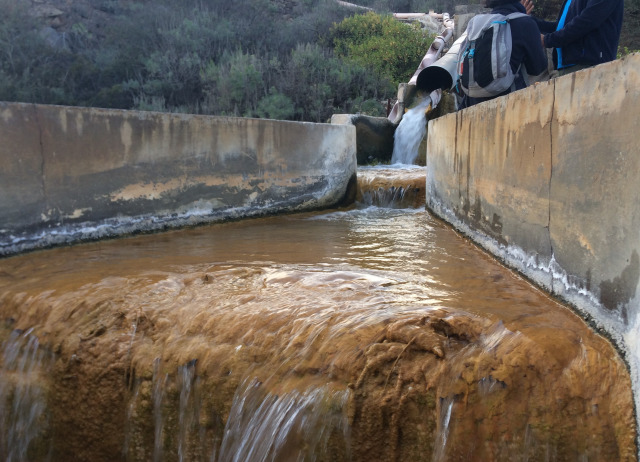Geophysical monitoring for the non-invasive measurement of groundwater in aquifers
The research project “Remote Characterization of groundwater storage changes using geophysical Observations and Modelling of Poroelastic processes in Aquifiers, under Compaction and Transient groundwater flow conditions” (COMPACT - PID2019-104571RA-I00) has been selected for the Ministry of Science and Innovation's competitive programme for R&D&I Projects 2019: Challenges for Society. The project will be run until December 2022, with a funding of 151,250 €.
The project's main objective is the development of a new methodology to estimate changes in groundwater storage in aquifers. The project will be led by the CSIC researcher from the Institute of Natural Products and Agrobiology Pablo J. González, with the collaboration of researchers from the Institute of Geosciences (IGEO-CSIC), the University of La Laguna, Tragsatec and INDRA, as well as the participation of researchers from five other countries. COMPACT addresses several of the 17 Sustainable Development Goals of the United Nations Agenda 2030: Access to water, Climate Change and Ensure sustainable consumption and production patterns.
Currently, it is estimated that groundwater is the main source of fresh water for more than two billion people in the world. Moreover, this dependence is expected to increase in the coming years due to a growing demand, as well as a decrease in access to surface water, as a consequence of climate change. Aquifers, which are the porous and permeable systems in which groundwater accumulates, respond to both natural and human-induced recharge fluxes by changes in water storage and fluid pore pressure, affecting the flow of groundwater. Traditionally, its monitoring is based on the collection of limited data, due to its high cost, and its subsequent use in complex numerical models to characterize the flow of groundwater. These models are not always reliable due to the highly heterogeneous aquifer materials involved. Thus, it is difficult not only to know in detail the water levels in aquifers, but also how they change over time. Without such knowledge, water resources management is more difficult and complex.
This research project aims to overcome some of these limitations by improving the measuring of changes in groundwater storage using non-invasive geophysical techniques. The researchers will combine methods to monitor ground movements that occur through compaction of aquifer materials. They will also use geophysical data to provide information on changes in the amount of water in the ground. These values, extracted by means of surface instrumentation, will be combined with the physical and mechanical characterization of rock samples to establish quantitative relationships and model the real changes in groundwater storage.
Although research will be carried out in a Tenerife aquifer, the methods used in this project are intended both to be extrapolated to other aquifers and to provide a tool at a more affordable cost. Thus, COMPACT intends to contribute not only to a better understanding of groundwater dynamics, but also as a means to a better management of water resources through innovative strategies of geophysical monitoring of groundwater.
